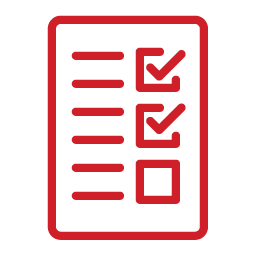All Washington University researchers are required to follow current federal regulations for data security and reproducibility. Federal funding agencies require researchers to develop management and access plans for data and publications. During the planning phase, researchers must consider a variety of factors when choosing a location to store research data.
Below is a listing of resources including policies, how-to’s, offices, and more.
Lifecycle of Data at WashU

Data Management Planning

Data Acquisition & Collection
- Data Use Agreements
- Human Participant Data Considerations (Becker Library)
- Managing Data (WashU Libraries)
- Securing Controlled Unclassified Information (CUI)

Storage, Security, & Analysis

Dissemination & Preservation
- Data Sharing & Transfer Guidance
- Data Management & Sharing (Becker Library)
- Digital Research Materials Repository (WashU Libraries)
- Human Data Disclosure Policy (School of Medicine)
- NIH – Scientific Data Sharing
- Open Access: Becker Library and WashU Libraries
- Sharing & Archiving Data (WashU Libraries)
- Data Access & Reuse (Becker Library)
Policies
WashU has several polices related to data management, spanning across the data lifecycle.
This policy identifies standards in the generation, management, retention, preservation, curation, and sharing of research data. The policy also addresses rights and obligations regarding the dissemination and commercialization of knowledge resulting from WashU research.
This policy and associated guidance provides an outline of the physical and logical security controls needed to reduce the risk of unauthorized access or use of systems in a WashU data center.
The White House Office of Science and Technology issued a directive in 2013 requiring federally funded scientific research publications and data sets to be made freely available to the public. As a result, many public and private funders also instituted directives on data sharing requirements.
Sharing human data with third parties for research and technology development has potential to accelerate biomedical research and advance science in support of the missions of Washington University and our affiliated hospital partners. The purpose of this policy is to establish the principles under which sharing of human data with external parties is done in an ethical and secure manner and that furthers the mission of enhancing education, advancing science and research, and delivering high-quality, innovative patient care.
The International Committee of Medical Journal Editors (ICMJE) requires that an IDP Sharing Statement be include in the ClinicalTrials.gov registration.
This Policy establishes the requirements of submission of Data Management and Sharing Plans and compliance with NIH Institute, Center, or Office approved Plans. It also emphasizes the importance of good data management practices and establishes the expectation for maximizing the appropriate sharing of scientific data generated from NIH-funded or conducted research, with justified limitations or exceptions. This Policy applies to research funded or conducted by NIH that results in the generation of scientific data.
Washington University has adopted a Records Management Policy to meet the administrative, legal, financial, research, and historical needs and requirements of the university. The Records Management Policy includes record retention and record disposal policies.
Research data that are commonly accepted in the scientific community as necessary to validate research findings must be retained by WashU researchers for a minimum period required by applicable laws and regulations, funding agency requirements, or other agreements. The University and the Principal Investigator have rights and responsibilities concerning access to, use of and maintenance of original research data and records.
Becker Medical Library offers a wealth of information related data management and sharing polices from: the NIH, other federal agencies, and foundations, charities, and organizations.
Tools for Data Collection & Management
WashU Information Security provides guidance on data classification and security requirements, which can help in determining the tools you use to store research data.
LabArchives, is a cloud-based research data collaboration and management tool. It makes organizing, storing and sharing lab data fast, simple and accessible on all digital platforms.
MDClone is a free, secure, self-service platform for building queries and downloading computationally derived (“synthetic”) data from the Institute for Informatics’ research data core (RDC). Since the data do not contain protected health information, their use is not classified as human subject research.
REDCap is a free, secure web application for building and managing online surveys and databases. Its secure method of flexible yet robust data collection is geared specifically to support online or offline data capture for research studies and operations.
The I2 Core Services’ data broker team provide data brokerage services to BJC, WUSM, and external agencies.
The RDC is an IRB-approved service designed to meet the clinical and translational research needs for WUSM and BJC researchers. Researchers can have our team pull data or we can set up an analyst from a department to have access to our secure data lake environment to pull the data themselves.
OHIDS provides a variety of services including requests for data, special project areas, data management, consultations, and analysis.
The Data Storage Platform is a scalable, high-performance and distributed storage infrastructure with integrated long-term archiving capabilities. There are many enterprise level features to facilitate data analysis, management, curation and retention. All faculty involved in research have access to The Data Storage Platform, including access to 5TB of free Active storage.
This service provides sharing and curation for digital data and other research outputs (images, field sheets, spreadsheets, protocols, analysis scripts, etc.). Curation may include treatments such as review, documentation enhancement, transformation, and the preservation actions on digital objects for long-term access. The WashU Digital Research Materials Repository is a subset of the OpenScholarship institutional repository.